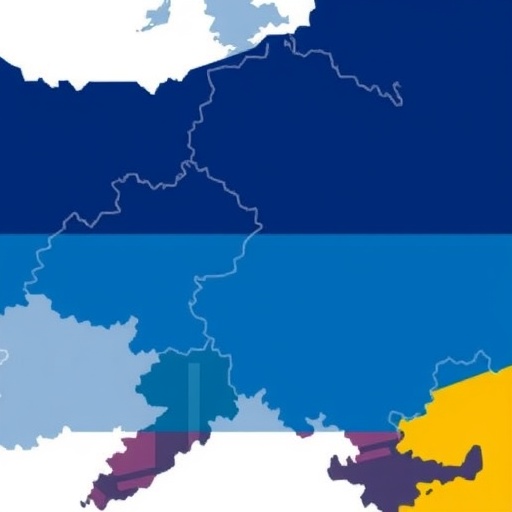Coalition of the Willing Escalates Oil Sanctions and Military Support to Force Russia Out of Ukraine War
In a bold move amid the escalating Ukraine crisis, leaders from the Coalition of the Willing have vowed to ramp up oil sanctions against Russia, aiming to choke its war machine while pledging fresh military support to Kyiv. This unified front, announced at a high-stakes summit in Brussels, signals a renewed push to isolate Moscow economically and bolster Ukraine’s defenses as the conflict enters its third year.
- Brussels Summit Forges Ironclad Unity Against Russian Aggression
- Intensifying Oil Sanctions to Starve Russia’s War Economy
- Delivering Unprecedented Military Support to Ukraine’s Frontlines
- Global Ripples and Russian Backlash to the Coalition’s Moves
- Charting the Path Forward in the Ukraine-Russia Endgame
The announcement comes as Russian forces continue their advances in eastern Ukraine, with recent reports indicating heavy casualties on both sides. The Coalition—comprising key NATO allies, including the United States, United Kingdom, Germany, and Poland—emphasized that removing Russian oil and gas from global markets is crucial to depriving President Vladimir Putin of the funds fueling the invasion. “We will not relent until Russia withdraws its troops,” declared U.S. President Joe Biden in a virtual address, underscoring the group’s commitment to sustained pressure.
This pledge builds on existing measures, where Western nations have already slashed their dependence on Russian energy imports by over 90% since the war began in February 2022. However, with Russia redirecting its oil exports to countries like China and India, the Coalition is now targeting a broader global embargo to further erode Moscow’s revenues, which topped $300 billion from energy sales last year alone.
Brussels Summit Forges Ironclad Unity Against Russian Aggression
The Brussels summit, held over two intense days at NATO headquarters, brought together more than 20 world leaders under the banner of the Coalition of the Willing. Formed in the war’s early months as a flexible alliance beyond traditional NATO structures, the group has evolved into a powerhouse for coordinated action. Discussions focused on synchronizing diplomatic, economic, and military strategies to accelerate an end to the Ukraine war.
European Commission President Ursula von der Leyen highlighted the summit’s outcomes, stating, “Our coalition stands united in its resolve. By intensifying oil sanctions on Russia, we are not just supporting Ukraine—we’re safeguarding global stability.” The leaders agreed on a phased implementation plan, starting with enhanced enforcement of price caps on Russian crude, currently set at $60 per barrel, and expanding secondary sanctions on entities facilitating Russia’s energy trade.
Key agreements included a shared intelligence framework to monitor sanction evasion and joint diplomatic outreach to neutral nations like Turkey and Saudi Arabia, urging them to limit dealings with Russian energy firms. This collaborative approach addresses previous fractures within the alliance, such as Hungary’s vetoes on EU-wide measures, by allowing the Coalition to bypass slower multilateral processes.
Attendees also reviewed the war’s human toll: over 500,000 combined military casualties estimated by Western intelligence, alongside 10 million Ukrainians displaced. These stark figures fueled emotional testimonies from Ukrainian representatives, including Foreign Minister Dmytro Kuleba, who urged, “Every day of delay costs lives. Your military support and oil sanctions are our lifeline.”
Intensifying Oil Sanctions to Starve Russia’s War Economy
At the heart of the Coalition’s strategy lies a aggressive expansion of oil sanctions targeting Russia’s energy sector, which accounts for nearly 40% of its federal budget. Since the invasion, the West has imposed a barrage of restrictions, including the EU’s ban on seaborne Russian oil imports and the G7’s oil price cap. Yet, Russia has adapted by selling discounted barrels to Asia, maintaining export volumes near pre-war levels at around 7.5 million barrels per day.
The new pledges aim to close these loopholes. The Coalition will pursue stricter penalties for “shadow fleet” tankers—often uninsured vessels rerouting Russian oil—and collaborate with international bodies like the International Maritime Organization to blacklist non-compliant ports. “We’re moving from containment to constriction,” explained UK Prime Minister Rishi Sunak, announcing London’s plan to seize Russian assets worth £200 million to fund Ukraine’s reconstruction.
Economically, these measures could slash Russia’s oil revenues by an additional 20-30%, according to analysts at the International Energy Agency (IEA). This would compound the ruble’s volatility and force Moscow to dip into its $600 billion sovereign wealth fund, already strained by military expenditures exceeding $100 billion annually. Critics, however, warn of short-term global energy price spikes; Brent crude has hovered around $80 per barrel, and further disruptions could push it toward $100, exacerbating inflation in Europe and beyond.
Ukraine’s perspective is unequivocal. President Volodymyr Zelenskyy, joining via video link, praised the initiative: “Oil sanctions on Russia are not punitive—they’re poetic justice for a regime built on black gold.” He detailed how redirected Russian funds have financed atrocities, from Mariupol’s destruction to drone strikes on civilian infrastructure, underscoring the moral imperative behind the economic warfare.
Delivering Unprecedented Military Support to Ukraine’s Frontlines
Complementing the economic squeeze, the Coalition committed to an unprecedented surge in military support for Ukraine, totaling over $50 billion in new pledges. This includes advanced weaponry like F-16 fighter jets from the Netherlands and Denmark, Patriot air defense systems from Germany, and long-range ATACMS missiles from the U.S., aimed at enabling Kyiv to strike deep into occupied territories.
The aid package addresses Ukraine’s urgent needs amid intensified Russian assaults. Since January 2024, Moscow has launched over 1,000 Shahed drones and missiles, overwhelming Kyiv’s defenses and causing widespread blackouts. Coalition leaders outlined a “sustained delivery pipeline” to ensure rapid deployment, with training programs for Ukrainian pilots set to begin in Poland next month.
Poland’s President Andrzej Duda emphasized the strategic rationale: “Military support isn’t charity—it’s deterrence. By arming Ukraine, we prevent Russia from eyeing NATO borders next.” The commitments also extend to non-lethal aid, such as cyber defense tools and humanitarian demining equipment, vital for reclaiming farmland contaminated by unexploded ordnance.
Challenges persist, including production bottlenecks for munitions; the U.S. alone has depleted stockpiles after sending 2 million 155mm artillery shells. To counter this, the Coalition plans joint procurement from manufacturers in South Korea and Australia, diversifying supply chains. Ukrainian military officials report that current aid has helped repel 70% of Russian incursions in the Kharkiv region, but warn that without escalation, Russian gains could encircle key cities like Kherson.
Human stories amplify the stakes. A Ukrainian soldier, speaking anonymously from the Donbas front, shared, “These weapons mean we can fight back, protect our homes. Without them, Russia’s shadow grows longer.” This narrative resonates globally, driving public support for the Coalition’s resolve.
Global Ripples and Russian Backlash to the Coalition’s Moves
The Coalition’s dual-pronged approach is already sending shockwaves worldwide. Energy markets reacted swiftly to the Brussels announcement, with Russian Urals crude dipping 5% in early trading. Major oil importers like India, which bought 1.5 million barrels daily from Russia last year, face diplomatic pressure to diversify, potentially reshaping trade flows and boosting LNG exports from the U.S. and Qatar.
Russia’s response was predictably defiant. Kremlin spokesperson Dmitry Peskov dismissed the pledges as “economic terrorism,” vowing retaliatory measures like cutting gas supplies to Europe—already reduced by 80%—and deepening ties with BRICS nations. Putin, in a televised address, claimed the sanctions would “only strengthen our resolve,” while state media amplified narratives of Western hypocrisy amid ongoing Middle East conflicts.
Experts weigh in on the broader implications. Dr. Elena Petrova, a Russia specialist at the Carnegie Endowment, notes, “Oil sanctions on Russia could accelerate de-dollarization efforts, but at the cost of higher global emissions if alternatives like coal surge.” Conversely, IEA chief Fatih Birol predicts a net positive for energy security, as Europe accelerates renewables, with wind and solar capacity up 15% since 2022.
In Ukraine, the mood is cautiously optimistic. Civilians in Kyiv, enduring nightly air raids, view the Coalition’s support as a beacon. One resident, Maria Ivanova, told reporters, “We’ve survived on hope. Now, with more military support, we believe in victory.” Yet, fatigue is evident; polls show 60% of Ukrainians favor negotiations, though only if they include full territorial restoration.
The Coalition’s actions also spotlight divisions. China and Iran, Russia’s allies, have increased oil purchases, complicating enforcement. Meanwhile, African nations reliant on cheap Russian wheat—exports down 30% due to Black Sea blockades—urge balanced approaches to avoid food crises.
Charting the Path Forward in the Ukraine-Russia Endgame
As the Coalition of the Willing translates pledges into action, the Ukraine war’s trajectory hinges on implementation speed and international buy-in. Upcoming milestones include a U.S.-led task force monitoring sanction compliance by Q2 2024 and Ukraine’s integration into NATO’s command structure for real-time aid coordination.
Long-term, success could force Russia into concessions, perhaps via a frozen conflict or Minsk-style accords, but analysts predict prolonged stalemate without battlefield shifts. Zelenskyy’s “Victory Plan,” unveiled last fall, aligns with Coalition goals, calling for NATO membership and economic decoupling from Russia.
Geopolitically, this pressure might deter aggression elsewhere, from Taiwan to the Baltics. Yet, risks abound: escalation if Russia deploys tactical nukes or if oil shocks trigger recessions. The Coalition’s leaders, aware of these stakes, ended the summit with a joint declaration: “Peace through strength—for Ukraine, for Europe, for the world.”
With Russian oil sanctions tightening and military support flowing, the message to Moscow is clear: isolation awaits unless the invasion ends. As global eyes turn to the frontlines, the Coalition’s resolve could tip the scales toward a Ukrainian resurgence, reshaping the post-war order.








